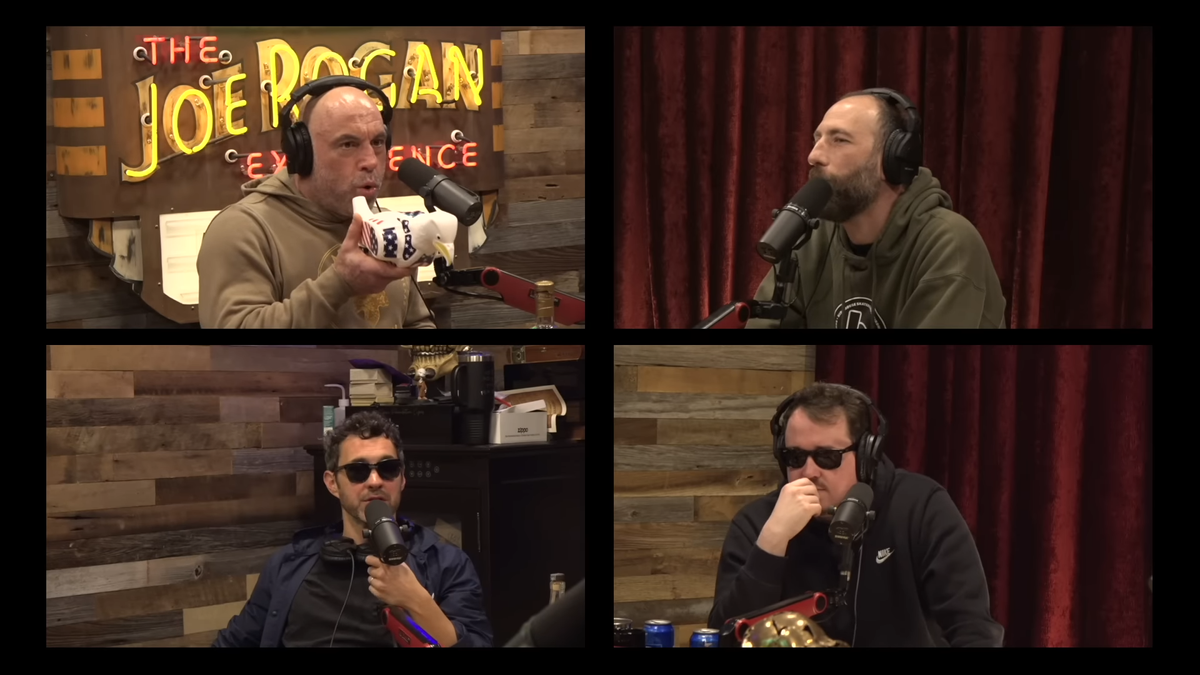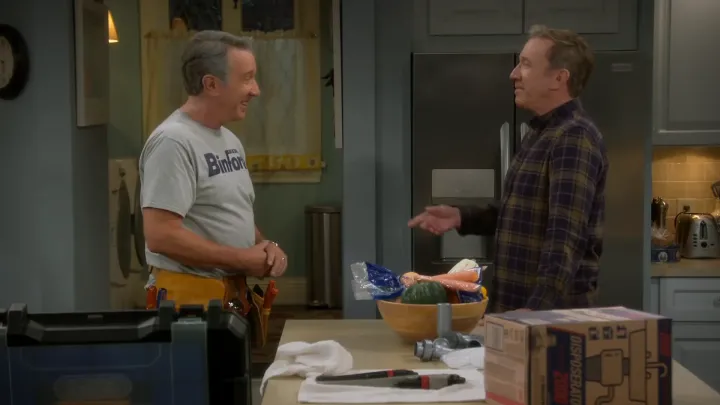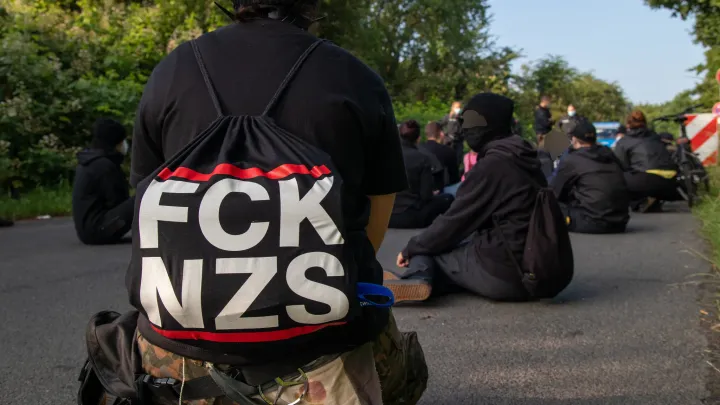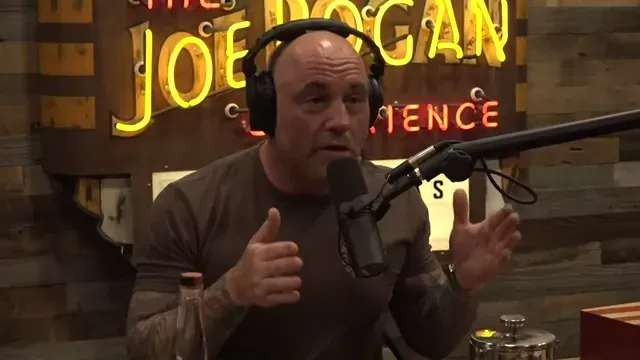Window Shifts
On the success of the Austin project.

Apologies for the light programming this week, I overestimated my ability to get work done while traveling. But I have a couple things I want to share with you real quick.
First, I was flattered to be invited on The Lever's podcast Movies vs. Capitalism to discuss one of my favorite films, Michael Sarnoski’s Pig. If that sounds fun to you, you can check out our conversation here. Thank you to Humorism friend Frank Cappello and Rivka Rivera for having me on.
Second, I want to share two excerpts from recent podcasts that illustrate how far comedy’s Overton window has shifted in recent years, largely thanks to the efforts of a certain school of comics. The first clip is from an episode of Joe Rogan’s podcast released a few days ago, featuring Shane Gillis, Mark Normand (who at one point refers to the Israeli government as “the Jews,” i.e. “the Jews threw out a ceasefire, like, ‘Hey, let’s do a ceasefire,’ and Palestine was like, ‘Nah’”), and Ari Shaffir (who insists that antisemitism isn’t a problem because he personally hasn’t experienced any, while elsewhere complaining that “the Jewish community” hasn’t made any statement about the Chabad tunnels). In the following section, they discuss Gillis’s recent appearance on SNL:
ROGAN: Did it feel like a rite of passage? What did it feel like for you?
NORMAND: It's a cool win. It's a cool closing on the story.
GILLIS: I think it's a cool win for the whole scene. I think it's nice for that. I mean, obviously it just brought the story back up again.
NORMAND: But you were defended quite a bit.
ROGAN: But it was also—it's like honestly, this was like them saying sorry.
SHAFFIR: Yeah, exactly.
ROGAN: Oh, that's cool.
GILLIS: That’s what it was.
NORMAND: Admission of guilt.
GILLIS: It was the closest they can come to an admission of guilt. Which is what it was.
ROGAN: Also, here's thing's the thing. It's an acknowledgement of talent.
SHAFFIR: That too.
ROGAN: It's like recognizing, hey, this guy might be one of the biggest comics ever and it's happening right now. And we should probably get back on board.
SHAFFIR: Yeah, exactly. Do it before it's too late. Don't go 20 years.
NORMAND: I agree, but it's annoying with the cancel shit. 'Cause they go, "He's doing great! What are you talking about?" Well, he's also a good comic who worked his way up and has a sketch show and all this other shit and he sells a ton of tickets. So they have to acknowledge it.
ROGAN: Yeah, but that's the thing. Isn't that always the goal? Just to become undeniable?
SHAFFIR: Yeah, but if you were doing that well and not doing well, like, nationally, they wouldn't be like [cross-talk].
NORMAND: He still deserves an apology if he wasn't doing as well.
SHAFFIR: Exactly, exactly.
NORMAND: I'm not saying you suck, but I'm saying if you were not huge, you still got fucked.
ROGAN: It's better for everybody if they don't say the words. It's better for everybody. Everybody knows the truth. But it's better for everybody if they don't say the words.
[…]
GILLIS: Yeah. Look, I thought it was a nice—I thought it was nice. I think it's a good—if we're gonna talk about all the culture shit, I think it's cool they brought me back and it's cool I said yes. I think it's a nice moment for everybody. Because you don't want to be a guy that's like, "Fuck everybody that said fuck me."
SHAFFIR: Yeah, exactly right.
GILLIS: It's like, can we just stop? And they offered the fucking olive branch. They were the ones who—
NORMAND: They should.
ROGAN: It's great.
GILLIS: And they should, they did the right thing.
SHAFFIR: They did the right thing. Because most people would just be like [unintelligible nagging sound] that person forever that I hated once.
GILLIS: No, they did the cool thing. Everybody there was cool.
ROGAN: They see where the tide is going. It's just, you steer into the weight.
GILLIS: And also they got caught up in it.
SHAFFIR: They got caught up in it.
GILLIS: They got caught up in it. And so I don't have any problem with that.
ROGAN: Don't you think that is just less effective now?
NORMAND: A hundred percent. TMZ tried to do a whole thing on him—
GILLIS: That was wonderful.
NORMAND: I read every single tweet about it 'cause I'm a psycho, and it was like, I like you even more now. Bigger fan. That's hilarious. Thanks for this. This was a great clip.
What I would like to note about this is that the clips Normand refers to—and Gillis laughs about—include fully mask-off racism, homophobia, and antisemitism. They’re the clips I wrote about in my LA Times column about Gillis’s return to SNL, many of which you can still find online: he says the n-word, chants that “white people are the best,” says he hates Jews and Black people, performs a crude impersonation of someone with Down syndrome, and uses a slur for Jewish people. In the past this would have been career-ending stuff, the sort of jokes other comedians would at the very least feel obliged to perfunctorily condemn. And yet here’s Mark Normand, who cohosts Tuesdays with Stories with Louis CK opener Joe List and We Might Be Drunk with Sam Morril, shamelessly praising them on a massive platform.
As I said in my September essay about Gillis, the norms in comedy have moved so far that the use of slurs is no longer considered dispositive of racism. Nor is the straightforward expression of racist beliefs. For the dominant school of contemporary standup comedians, the actual moral failing, the thing SNL magnanimously admitted it was guilty of when it brought Gillis back, is caring about racism at all.
Which brings me to the second excerpt I’d like to share, from Howie Mandel’s recent appearance on Mike Binder’s podcast Stand-Up World. Binder, you may recall, is an anti-vaccine crank and a fairly marginal comedian despite his long history with the Comedy Store. Mandel, however, is as mainstream as you can get: a world-famous comedian and TV star who hosts reality shows and is a co-owner of Just For Laughs, the powerful comedy festival that recently announced it would be filing for bankruptcy. The following passage comes as he reminisces about the edginess that used to define club comedy:
MANDEL: And then a couple of years ago, political awareness kind of took over. Even before this, whatever people call woke, it started in colleges. A lot of my friends who used to play colleges, you'd think you'd play to colleges because that would be the young open-minded people where you could go so far, they were the first people to really shut down.
But I think the pendulum swung really far into the woke. And I feel like with people like Shane Gillis and Bert Kreischer and Ari Shaffir and all these Austin comics and all these new guys, Mark Normand and all these people. These people who don't give a shit about that and believe in the purity of what it is—and it is an art form, that purity—are bringing the pendulum back.
And they're selling bigger numbers than anybody that is trying to conform to whatever you believe you need to conform to. And art is, even if it's comedy, is a non-conformist kind of palette that we should have. It's kind of like, if you think of comedy as an art, they started telling us there's certain colors you can't use. If you're a painter, you shouldn't say, "You could paint anything you want, but don't use black, don't use any yellows, and it's really not right to use blue." Art suffers. And there isn't anything that we shouldn't talk about. There isn't any there "too soon."
What interests me about this passage is how it speaks to the success of what I’ll call the Austin project. To recap, Rogan moved to Texas in 2020 to take advantage of its lax health restrictions and create what he explicitly described as a utopia for anti-woke comedians: “guys who are just bucking the system during Covid, during the pandemic, during the woke culture.” He was quickly followed by comics like Tim Dillon, Tom Segura, Tony Hinchcliffe, and more recently Shane Gillis. He opened his own club, Comedy Mothership, which consistently produces sold-out shows with these comics and others in their cohort. Every day we see more and more evidence of this movement’s success, both locally and in the broader comedy industry: Gillis hosting SNL; Rogan inking a $250 million new deal with Spotify; Louis CK's return, largely facilitated through appearances on the anti-woke podcast circuit (including Gillis's, Rogan's, and Segura's); Howie Mandel, the human embodiment of comedy’s capitalist class, heralding these guys as non-conformists and pure artists; and pretty much everything else I've written about in this newsletter over the last few years.
It needs to be said (again) that the pandemic made this possible. You cannot separate the failure of comedy’s brief progressive era—that period in the late 2010s when it seemed like there was actually an emerging consensus that racism, Nazis, and sex abuse are bad—from the emptying-out of its physical spaces in early 2020, a phenomenon that made it possible for amoral opportunists to consolidate their market power and become, as Rogan put it, undeniable. It also needs to be said (again) that for all these people, this is what comedy is for. When they talk about art and free speech and purity, what they're really talking about is their own desire to be huge pieces of shit without social consequences. In effect, they see comedy as a way of taking the mask off while keeping it on.

This is why I increasingly find it unproductive to engage with so-called anti-woke comics in formal terms, whether by interrogating their ideology in light of their craftsmanship (“Shane Gillis may have said racist shit, but he’s a great joke-writer”) or by dismissing their moral failings as secondary to their artistic ones (“Dave Chappelle’s new special may be transphobic, but the real problem is that it’s not funny”). Both fail as analytic frameworks because they require us to pretend, just as these comedians pretend, that comedy is a magical form of speech in which ideological content is simultaneously devoid of potency and vastly more potent than other speech, else we wouldn’t be asked to give it special consideration. That’s not how anything works. Comedians are not vessels for autonomous aesthetic objects that hang in the air between us. They are people who do things, and their primary method of doing things is through their speech. Whether comics in the Austin school admit it or not, they are engaged in a self-consciously ideological project, and they have succeeded in large part because they offer up their own unscripted personalities for mass consumption. The more important question to ask about them is not what they say but what their speech does.
Perhaps more importantly, almost all of these guys fully admit they’re huge bigots. They do it constantly, on camera, in their own voices. (In the podcast episode I quoted in my LAT column, Gillis scoffs at a fellow comic’s argument that you can’t be a great comedian if you’re racist, sexist, and homophobic, offering Jay Oakerson and Rich Vos as proof that you can.) In that sense they treat the art of comedy as an elaborate con, a means of getting away with as much socially unacceptable behavior as they possibly can. Some years ago, the realm of the possible shrunk to such a perilous degree that it threatened to unravel the con. What we're seeing now is just how many people can't afford to let that happen.


